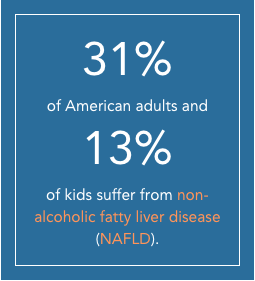By CEO Robert Forster, PT
On average, Americans consume about 100 pounds of sugar per year, or almost 30 teaspoons a day. According to the American Heart Association, women should have no more than six teaspoons of sugar per day, and men should have no more than nine teaspoons of sugar per day. Many Americans consume about double that amount; and about half of that sugar comes from soda and fruit drinks and smoothies, which also happen to be the number one source of calories in our diet. Here are seven hidden effects of sugar toxicity.
One: YOUR SKIN
Sugar consumption contributes to inflammation which can trigger inflammatory skin conditions like acne or eczema and accelerate skin aging.
Two: YOUR BRAIN*
Sugar triggers the release of dopamine and serotonin, boosting your mood and sense of pleasure, leading to addiction, and leaving you wanting more. Sugar impairs cognitive function and memory retention over the longevity of your life.
- While your body is processing sugar, a lot is also going on in your brain. Upon the first taste of sugar, neurons in the brain trigger your reward pathway releasing dopamine and serotonin—the
hormones that boost your mood and stimulate the area of the brain
associated with pleasure. When you consume sugar regularly, the sensitivity of these hormone receptors decreases. That means you’ll need even more of the sweet stuff to get the same “sugar
high” as before.
- The type of sugar you eat can also impact how much your brain wants it. Foods high in fructose, such as candy and soda, won’t suppress hunger hormones the same way glucose does, so you’re more likely to overeat it. Overconsumption of fructose has also been found to accelerate aging and negatively impact memory and
cognitive function.
- With the waves of energy surges and crashes that accompany sugar consumption, the brain struggles to maintain balance which can result in short-term effects like mood shifts, energy imbalances, and difficulty concentrating. In the long-term, over consumption of sugar has been associated with chronic mental health conditions such as clinical depression and anxiety.
- Additionally, research has shown that high sugar diets reduce the production of brain-derived neurotrophic factor (BDNF), a chemical that helps our brain retain memories and supports our ability to remember and learn new things. Consequently, lower levels of BDNF contribute to insulin resistance, type 2 diabetes, and metabolic syndrome.
- Because insulin helps our brain cells to communicate and function properly, increased resistance to insulin’s effects negatively impacts longterm cognitive abilities and memory retention.
Three: YOUR HEART
Sugar raises blood pressure and increases chronic inflammation, both of which can put a strain on the arteries of the heart and lead to cardiovascular disease.
Four: YOUR MUSCLES AND JOINTS
Sugar contributes to systemic inflammation that can exacerbate muscles and joints causing chronic pain and depleting important minerals needed for proper muscle contraction and relaxation.
Five: YOUR LIVER
Sugar leads to a fatty buildup, (triglycerides) in the liver that can lead to liver disease. Sugar has shown to be as damaging to the liver as alcohol!

- There is growing scientific consensus that one of the most common types of sugar, fructose, can be toxic to the liver, just like alcohol.
- Fructose is the sugar that makes fruit taste sweet. For most people who do not suffer from diabetes, there’s nothing wrong with eating fructose in its natural state, in fruit. But today, manufacturers extract and concentrate the fructose from corn, beets and sugarcane, removing the fiber and nutrients in the process. Getting frequent, high doses of fructose throughout the day, without fiber to slow it down, is more than our bodies were designed to handle.
- Fructose is especially harmful because while your liver can handle small amounts, metabolizing large quantities can be taxing and promotes the conversion of fructose into fat. That can drive your risk for obesity, type 2 diabetes, heart disease, and cancer.
Six: YOUR GUT
Sugar disrupts your gut microbiome and can lead to microbial and fungal imbalances that can cause both short and long term digestive issues.
Seven: YOUR PANCREAS
Sugar releases insulin to help stabilize blood sugar levels. Insulin is a hormone that makes you sleepy and slows your metabolism. When the pancreas is overexerted by a diet rich in sugar, it will produce less quality insulin and become ineffective in managing blood sugar altogether, leading to diabetes.
- So why does sugar have such a big impact on us? It all comes down to the way it is processed and used in the body. When we consume sugar, it is digested by enzymes in the small intestine that break it down into either glucose or fructose.
- Glucose is released into the bloodstream immediately and used for
energy while fructose needs to be converted into glucose by the liver
before it can be used. Glucose is then absorbed into the bloodstream, where beta cells in the pancreas monitor sugar levels. When blood glucose levels elevate, the pancreas releases the hormone insulin to help regulate levels appropriately.
- If you take in more sugar than your body needs, it gets stored for later use in the muscle and liver. Over time, though, regular overconsumption of sugar can lead to chronically elevated blood glucose levels. This can affect your body’s ability to properly produce adequate insulin. Your cells themselves can even become resistant to the effects of insulin. This leaves you with elevated blood sugar levels for longer and can potentially lead to pre- and eventually, type 2 diabetes.
If you or your loved ones are concerned about the toxic affects of sugar in your diet, and need nutritional and weight management guidance, please give us a call and schedule a free health and nutrition consultation. 310-582-8212







